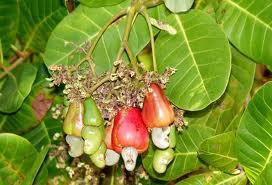Minister of Food and Agriculture Alhaji Mohammed Muniru Limuna says it is working closely with the private sector and the Ministry of Trade and Industries to set up regulatory boards for three selected tree crops namely; Rubber, Cashew and Oil Palm.
Speaking at a Pan African Agribusiness Incubation conference in Accra, Alhaji Limuna said the objective of establishing regulatory boards for the three cash crops is to develop these crops in line with best practices in leading producing countries with a primary objective of creating a platform for formalised interactions between the government and the private sector.
Plans are far advanced in that respect and very soon it would be given government approval for the commencement of its activities, he said.
Meanwhile, critics have observed that the fundamental problem of the country’s cash crop sector is the absence of a regulatory framework and body to manage, control and sustainably grow the sector to support the economy through wealth creation and employment generation.
According to the commodity watchers it is essential that a legally constituted body is established, whilst a sustainable funding mechanism is put in place, alongside a well designed and implemented long term development plan for these cash crop sector.
Currently, the country rubber cultivation sector which boasts of premium quality in the global commodities market is faced with non-existence of a comprehensive regulatory policy document which will outline guidelines to promote healthy competition within the crop’s supply value chain.
The establishment of a regulatory board for the cashew sub-sector to regulate and create a conducive environment for the growth and development of the cashew industry with consequential benefits to the national economy is also underway, According to government officials.
Alhaji Limuna observed that there are a number of investment opportunities in the crop and livestock sub-sectors and that there is investment opportunities exist in commercial scale production of various value chain for fresh and processing for both export and local markets.
Some of these, he said, include rice value chain to meet domestic needs and reduce imports; horticulture, including production and supply of vegetables to the domestic and external markets; poultry to meet domestic requirements, and cassava and related crops for industrial processing.
Alhaji Limuna explained that government, as part of its effort to improve the agriculture sector, is providing support through the fertilizer subsidy programme, irrigation schemes, and subsiding agricultural mechanisation, especially targeting small holder farming.
He indicated that a number of key policies, including Acts and Legislative Instruments have been developed and enacted, whilst others are currently being developed to create an enabling environment for growth.
“It is a well-known fact that Ghana is a global leader in best quality cocoa and the second highest producer after Ivory Coast. We also have other tree crops that offer similar potential, and need to be developed using our rich cocoa experience,” he said.
Business News of Tuesday, 11 October 2016
Source: B&FT
Moves to establish regulatory boards for cash crops intensified
 File photo
File photo












